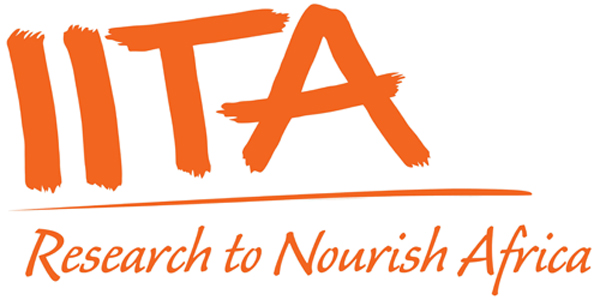Location
The International Institute of Tropical Agriculture (IITA) is a non-profit institution that generates agricultural innovations to meet Africa’s most pressing challenges of hunger, malnutrition, poverty, and natural resource degradation. Working with various partners across sub-Saharan Africa, we improve livelihoods, enhance food and nutrition security, increase employment, and preserve natural resource integrity.
“To offer leading research partnership that facilitates agricultural solutions to hunger, poverty, and natural resource degradation throughout sub-Saharan Africa.”
IITA’s mission is to assure food security for some of the world’s poorest people and provide them with viable strategies that create real, long-term results for economic development and community stability, while building an ecologically sound future that takes into account the issues of climate change. At IITA, we are dedicated to alleviating these problems and working to transform agriculture in Africa.
“The lead research partner facilitating agricultural solutions to overcome hunger and poverty in the tropics.”
IITA sees a bright future for Africa. We see a continent that can become a world leader in agriculture and sustainability. We understand that Africa needs a proactive CGIAR-supported Center that is closely linked to the demands of this continent. Our core beliefs and strategy reflect this.
In line with the new CGIAR, IITA is focused on four System-Level Outcomes described in the Strategic Results Framework.
IITA will advance these System Level Outcomes within five impact zones in sub-Saharan Africa by increasing major staple food yields in target R4D regions by two-thirds. Focusing on cassava, yam, maize, banana and plantain, soybean, and cowpea is the fastest and easiest way to impact farmers and increase the average farm income by half. As rural, farming communities in Africa are among the poorest in the world, these increases will lift over 11 million Africans or almost a fifth of households above the poverty line. Our vision of the future sees the region’s farms commit to restoring natural resources and sustainable farming practices for seven and a half million hectares of degraded farmlands, conserving them for future generations of farmers and food producers.
Mission
Vision
Members:
Resources
Displaying 11 - 15 of 122Invest in climate-smart soil and land health
Better soil health can increase agricultural productivity. Restoration activities can build on-farm resilience and contribute to climate change adaptation and mitigation.
Land and soil health surveys can improve crop modeling predictions under various climate scenarios and guide more targeted interventions.
Currently, most assessments of land and soil health do not consider the social, ecological, and biophysical constraints, or acknowledge the variations in the landscape.
Know what drives the adoption of climate-smart agriculture across different scales
Recognizing successful climate-smart agricultural (CSA) practices is not enough for them to be adopted at scale.
At many sites, government or development-led interventions to promote CSA practices face low adoption rates or are not adopted at all.
Data shows that CSA adoption depends on drivers and constraints beyond the CSA practices. Blanket adoption of a specific intervention should never be assumed: the adoption of CSA practices is usually patchy because of many conditions.
Sustainable recommendation domains for scaling agricultural technologies in Tanzania
Low adoption of sustainable intensification technologies hinders achievement of their potential impacts on increasing agricultural productivity. Proper targeting of locations to scale-out particular technologies is a key determinant of the rate of adoption. Targeting locations with similar biophysical and socio-economic characteristics significantly increases the probability of adoption. Areas with similar biophysical and socio-economic characteristics are referred to as recommendation domains (RDs).
Measuring sustainable intensification in smallholder agroecosystems: A review
Sustainable intensification (SI) is at the forefront of food security discussions as a means to meet the growing demand for agricultural production while conserving land and other resources. A broader definition of SI is emerging that takes into account the human condition, nutrition and social equity. Next steps require identification of indicators and associated metrics, to track progress, assess tradeoffs and identify synergies. Through a systematic, qualitative review of the literature we identified SI indicators, with a primary focus on African smallholder farming systems.




